Tobacco-Free Youth
The vast majority of tobacco users began when they were young. In fact, each day in the U.S., more than 1,600 people younger than 18 years of age smoke their first cigarette, and more than 235 become regular, daily smokers. Young people face enormous pressures to smoke. Smoking in movies, music videos and advertising portrays tobacco use as a social norm, encouraging kids to smoke. Plus, when their parents or peers use tobacco, they’re more likely to start, too.
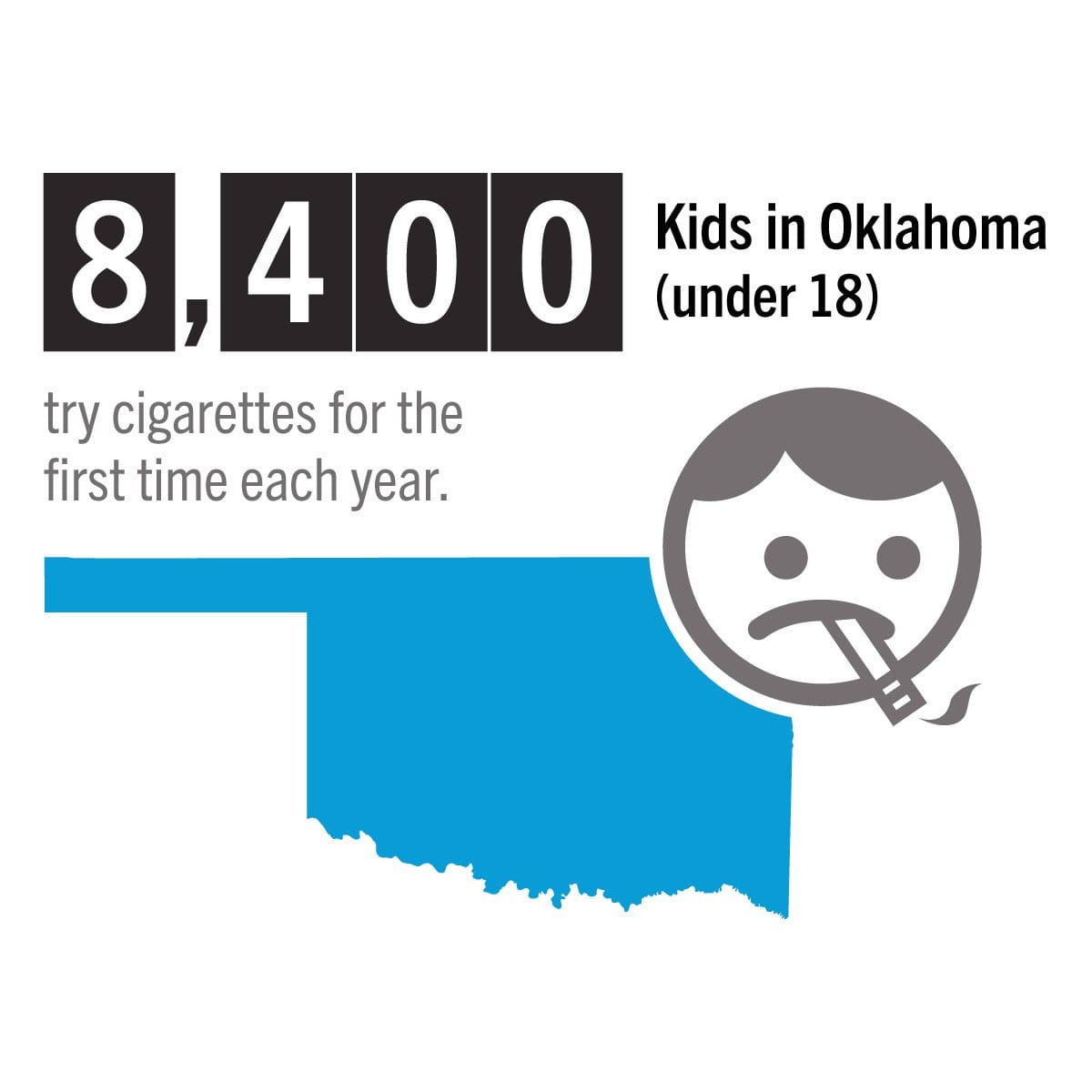
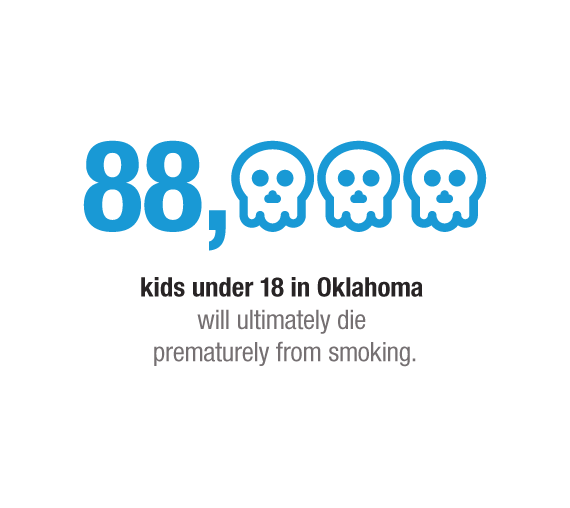
A variety of other contributing factors that influence youth tobacco use include:
- Low economic status
- Lack of parental support or involvement
- Low levels of academic achievement
- Low self-image or self-esteem
- Role modeling from parents or family
The impact of smoking not only immediately affects a young person’s health, but their future too. Youth smokers are more likely to develop severe levels of nicotine addiction compared to adults, which leads to continued tobacco use as they grow older. Nicotine narrows blood vessels, increases blood pressure and puts added strain on the heart. This means shortness of breath, asthma and respiratory illnesses… not to mention cancer and other chronic diseases. Aside from health effects, there are also many adverse social effects of smoking. It can make hair and clothes stink, stain teeth and cause bad breath. And smokeless tobacco can lead to cracked lips, sores and bleeding in the mouth.
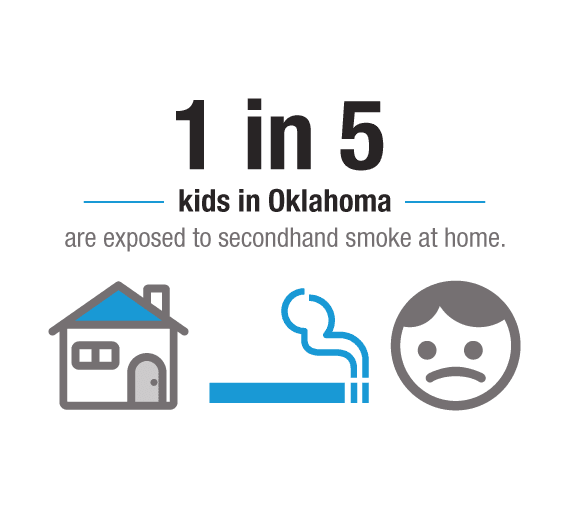
Preventing Youth Tobacco Use
Tobacco prevention is essential for the health and future of Oklahoma’s youth. Parents, schools and all members of the community have an enormous influence on a child’s decisions. We can help protect them from the dangers of smoking a number of different ways.
- Parents should talk directly to their children about the risks of tobacco. Your attitudes and feelings can greatly influence whether or not your child smokes.
- If your child has friends who smoke, talk about ways to defend against peer pressure.
- Schools can provide tobacco education and smoking prevention programs to students.
- If you’re a parent who smokes, try to quit. Call the Oklahoma Tobacco Helpline for free coaching and support. While you’re quitting, don’t use tobacco in your child’s presence and don’t leave it where they can easily access it.
- Youth can access the Helpline too. Quit coaching is available for callers 13 years of age and older. Call 1-800-QUIT NOW or visit OKhelpline.com for more information.
- As a parent, your attitudes and opinions have a powerful influence on your child’s behavior. That’s why it’s essential to talk to your kids about the dangers of tobacco. Click here for tips to get the conversation started.
- Learn more about the tie between not selling tobacco to those under 18 and federal funding for Oklahoma’s treatment dollars for those suffering from mental health disorders: Synar Compliance.
- Encourage kids to participate in youth initiatives like Kick Butts Day or World No Tobacco Day.
My Life, My Quit: Free quit help for teens
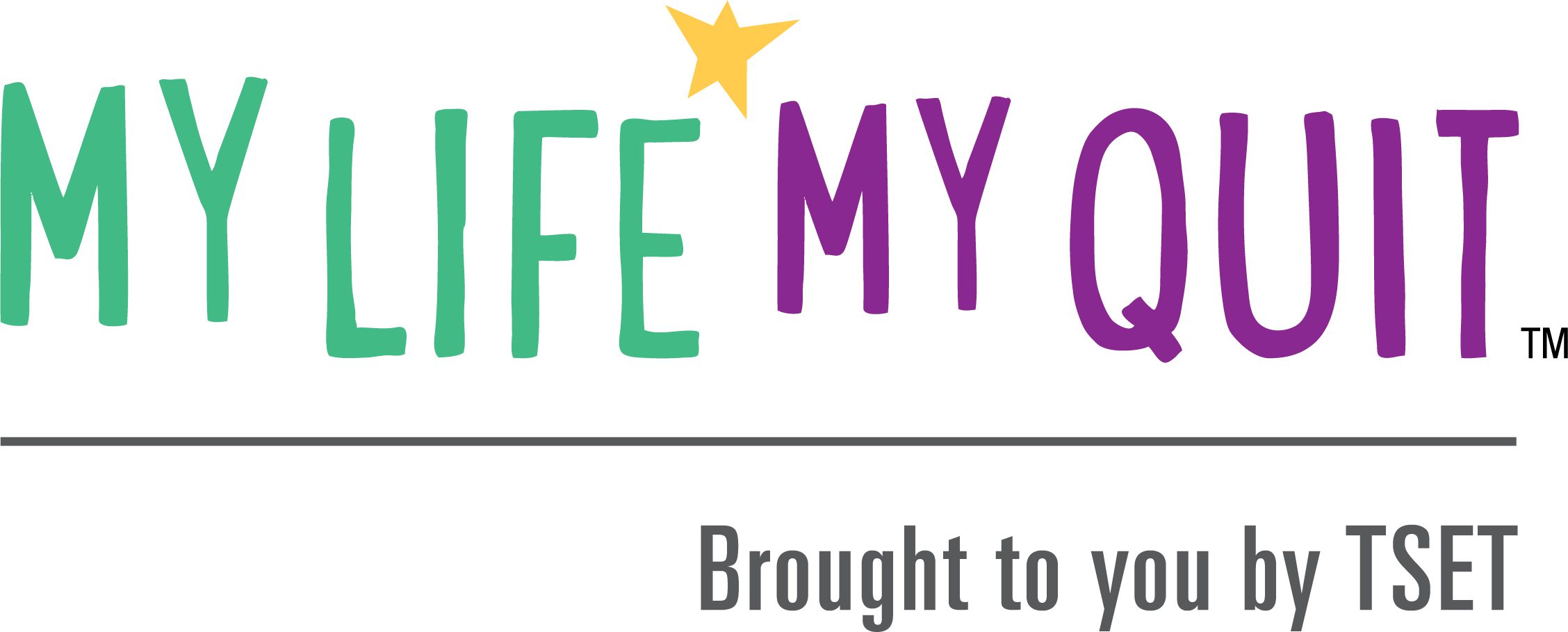
For kids under 18 who struggle with nicotine addiction, My Life, My Quit™ is the free and confidential way to quit smoking or vaping.
My Life, My Quit™ is for teens, 13 – 17, who want to quit vaping, smoking or chewing tobacco. Each teen gets quit help via TEXT, phone or online with trained staff. It’s easy!
My Life, My Quit™ uses proven methods for quitting. With evidence linking youth tobacco/vape use to addictive behaviors later in life, it is vital to get teens the support that works. My Life, My Quit’s™ compassionate coaching offers smart, simple and effective help.
Teens can text 36072 to get started today.
Visit MyLifeMyQuit.com to learn more.
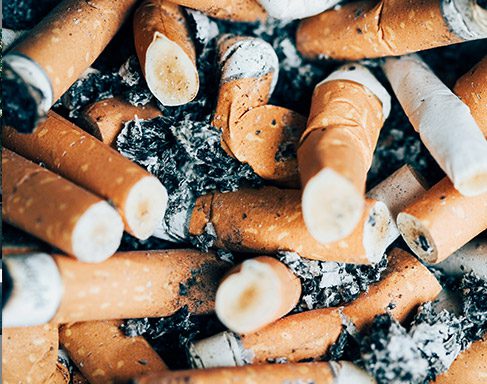
Learn more about the tie between not selling tobacco to those under 18 and federal funding for Oklahoma’s treatment dollars for those suffering from mental health disorders: Synar Compliance











